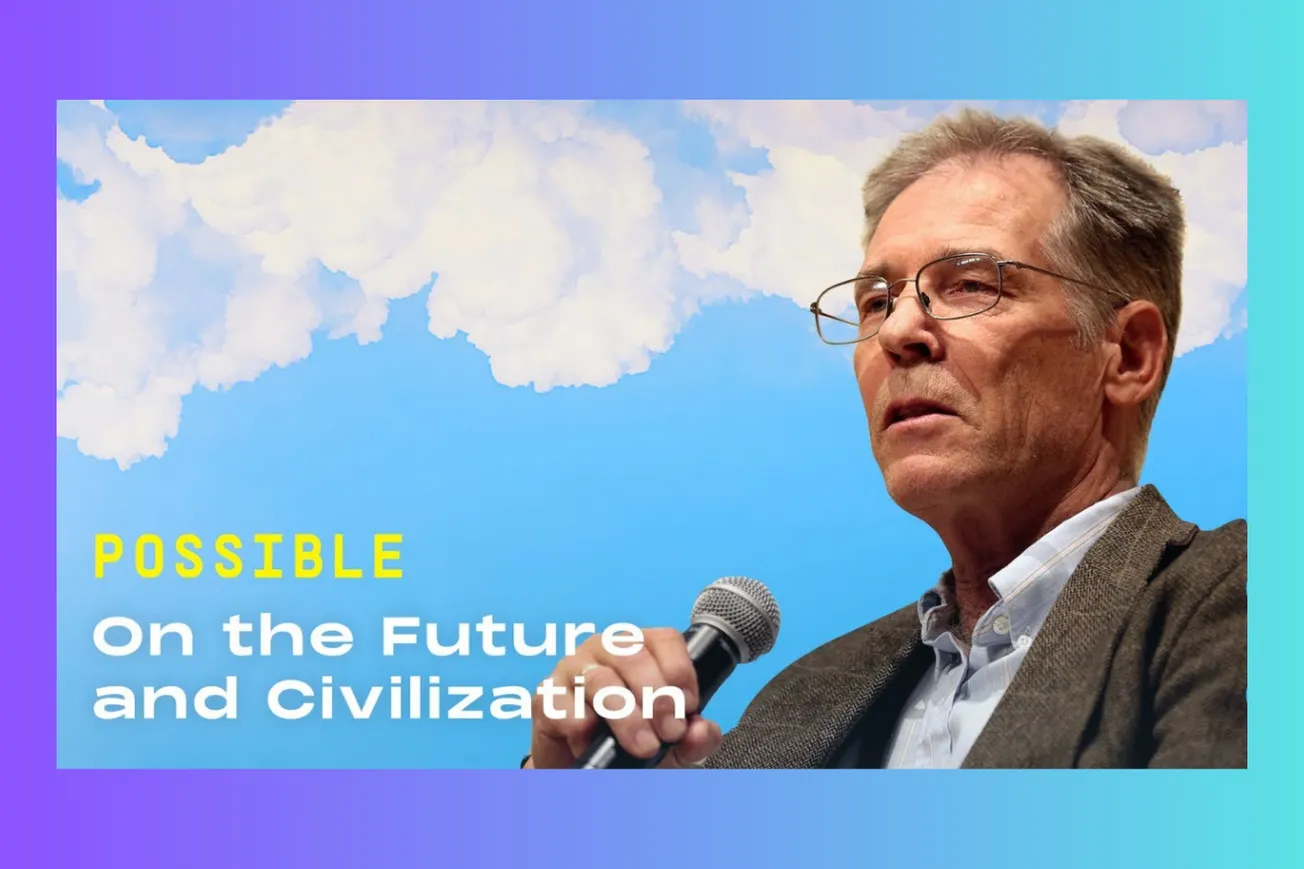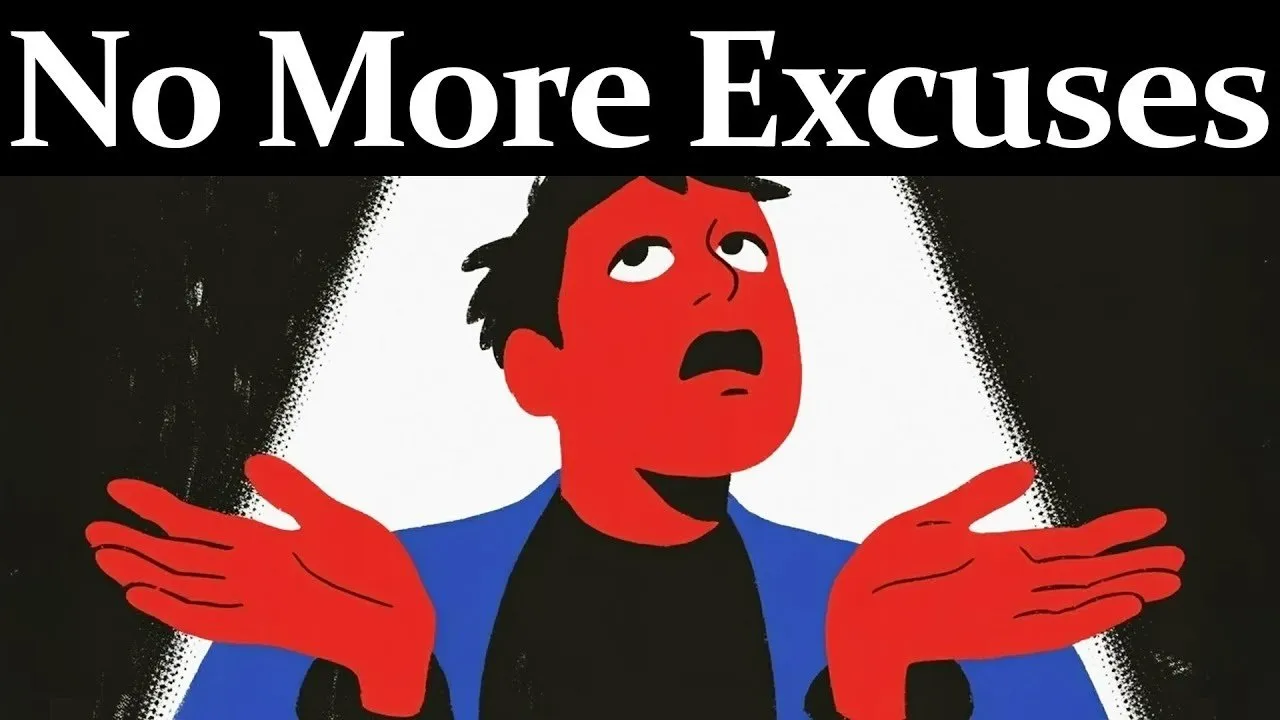Table of Contents
Kim Stanley Robinson reveals why our species' destiny depends on earthbound transformation rather than interstellar escape.
Key Takeaways
- Robinson argues humanity co-evolved with Earth and will never truly prosper off-planet due to our biological dependence on terrestrial ecosystems
- He views social systems like law and justice as "software technologies" that are just as important as hardware innovations for driving progress
- The author believes AI represents "extremely rapid computation" rather than true intelligence, with the real innovation coming from human programmers
- His novel "Ministry for the Future" wasn't prophetic but rather documented solutions already being developed by scientists and activists worldwide
- Robinson sees the 2020s as a crucial decade where humanity could achieve "general prosperity" if we focus on social and political transformation
- He emphasizes that progress happens through millions of individual contributions rather than single breakthrough moments
- The author maintains cautious optimism about humanity's ability to solve climate change and achieve a just society within 15 years
The Earth-Bound Reality of Human Evolution
Here's something most people don't think about when they dream of colonizing Mars: we're literally made of this planet. Robinson makes a compelling case that humanity's biological destiny is permanently tethered to Earth in ways we're only beginning to understand.
The gut microbiome revelation changes everything. "50% of the DNA inside your body is not human DNA," Robinson points out, and this isn't some abstract scientific curiosity. It means we're walking ecosystems, not independent biological units that can just pack up and move to another world.
- Robinson compares space travel to mountaineering's "death zone" above 26,000 feet, where the human body inevitably starts breaking down no matter what you do
- In his recent solar system novels, characters always need "sabbaticals" back to Earth, literally having to "eat some dirt" and reconnect with the biosphere to restore their health
- This isn't just poetic license - it's based on emerging science showing our dependence on Earth's complex biological systems goes far deeper than we realized
- The implications are staggering: all those dreams of interstellar colonization might be biologically impossible fantasies
What strikes me about Robinson's perspective is how it flips the entire space colonization narrative. Instead of seeing Earth as a launching pad for humanity's cosmic destiny, he argues we need to see it as our permanent home that we must learn to live with sustainably.
This doesn't mean we can't do useful work in space. Robinson mentions the idea of "offshoring" dirty industrial processes to space while keeping Earth as our beautiful, livable home. It's a much more practical vision than the sci-fi dreams of abandoning our planet entirely.
Characters as Windows into Human Nature
Robinson's approach to character development reveals something fascinating about how he thinks about humanity's future. Rather than creating superheroes or "omnicompetent" characters, he focuses on ordinary people - because that's what he believes will actually shape our future.
When asked which of his characters he'd most want to meet, Robinson immediately chose Galileo from "Galileo's Dream." But here's the interesting part: Galileo isn't really his character at all. He's a historical figure that Robinson imagined as a time-traveling detective, someone who could be "dragged hither and yon" to examine different scientific and social problems with fresh eyes.
- This choice reveals Robinson's belief that real change comes from ordinary people applying clear thinking to complex problems
- His characters are based on real people he knows, reflecting his conviction that everyday humans already possess the qualities needed to solve our biggest challenges
- The Galileo character represents intellectual curiosity and scientific rigor applied to social problems - exactly what Robinson thinks we need more of
- Rather than escapist fantasy, Robinson's fiction aims to show readers that they themselves could be the protagonists of positive change
There's something both humble and empowering about this approach. Robinson isn't suggesting we need to wait for genius saviors or technological breakthroughs. He's arguing that the capacity for creating a better future already exists in the kinds of people we encounter every day.
Social Technology: The Software of Civilization
This is where Robinson's thinking gets really interesting. While most futurists obsess over hardware innovations, Robinson focuses on what he calls "software technologies" - the social systems that govern how we organize ourselves.
"Law is a technology and justice is a technology," Robinson argues. "They are software systems." This reframing completely changes how we think about progress and innovation.
- Robinson sees social evolution as following predictable patterns, with "residual" elements from past systems coexisting with "emergent" features of future systems
- Feudalism combined ancient empires with emerging capitalist elements; capitalism combines residual feudalism with something new that's still developing
- Since American values theoretically include equality and justice, Robinson believes we're naturally evolving toward more equitable systems
- The question isn't whether this evolution will happen, but what forms it will take and how quickly we can accelerate the positive changes
What I find compelling about this perspective is how it treats social progress as a genuine technology that can be developed and improved. Instead of seeing political and economic systems as fixed or natural, Robinson approaches them as human inventions that can be deliberately redesigned.
He's particularly interested in how current AI capabilities might enable radical democratic innovations. "The entire world could be one 8 billion person Congress running the world," he suggests, with AI facilitating direct democracy on a global scale. Whether that's practical or not, it shows how Robinson thinks about technology as a tool for social transformation rather than an end in itself.
AI as Tool, Not Mind
Robinson's take on artificial intelligence cuts through a lot of the hype and hysteria surrounding the topic. His key insight? We're not dealing with artificial minds at all, but with "extremely rapid computation" that can mimic certain aspects of human communication.
The distinction matters more than you might think. When we call something "artificial intelligence," we're implying it possesses qualities like agency, judgment, and desire - qualities Robinson argues we don't even fully understand in ourselves.
- The Turing test was "always a very low bar" - it only measures whether a machine can fool humans in conversation, not whether it actually thinks
- Current AI systems excel at linguistic tricks, translation, and code generation because they're trained on massive corpuses of human language
- They're essentially collaborative intelligence systems that leverage collective human knowledge, not independent thinking entities
- The real innovation comes from the human programmers who designed these systems, not from the AI itself
Robinson makes a crucial point that often gets lost in AI discussions: "We don't know how brains work and we can never know how our brains work." If we can't understand our own thinking processes, how can we expect to recreate them artificially?
This isn't to diminish what AI can accomplish. Robinson acknowledges that current systems can do impressive work with summarization, analysis, and even creative tasks. But he frames these as powerful tools that augment human intelligence rather than replacements for human thinking.
The implications for how we integrate AI into society are significant. Instead of fearing robot overlords or expecting AI saviors, Robinson suggests we should focus on how these computational tools can help us solve social and environmental problems more effectively.
Ministry for the Future: Reporting on Hidden Progress
Robinson's 2020 novel "Ministry for the Future" has had an unusual impact for a work of science fiction. Rather than simply entertaining readers, it seems to have functioned as a kind of accidental journalism, documenting real solutions that were already being developed around the world.
The novel presents a "best case scenario" for the next 30 years - one where humanity manages to dodge mass extinction and successfully decarbonizes the global economy. What surprised Robinson was discovering that many of his supposedly futuristic ideas were already being worked on by scientists, activists, and policymakers.
- The "carbon coin" concept Robinson featured was based on actual work by researcher Delton Chen and was already being explored by major central banks
- The Network for Greening the Financial System - consisting of 90 of the world's biggest central banks - was already working to "green money right at its source"
- Landscape restoration projects Robinson described were already underway, like efforts to convert Central Valley farmland back into native marshes
- Many readers reached out to tell Robinson about similar projects happening in their own communities
This discovery transformed Robinson's outlook on humanity's chances for addressing climate change. "I was a more worried person in 2019 than I am now," he admits, and that shift came from learning about the massive amount of positive work already happening around the world.
The novel seems to have succeeded because it helped people see how their individual efforts fit into a larger historical transformation. As Robinson puts it, readers could "see your own work as a brick in a wall and you can see the wall." Nobody's individual contribution feels big enough, but when you understand the full scope of what's being attempted, each piece becomes part of something genuinely significant.
The Accelerando: Moments of Rapid Change
Robinson has a fascinating theory about how progress actually happens. Rather than steady, linear advancement, he sees history as punctuated by periods of "intense acceleration" that fundamentally reshape society.
World War II triggered what scientists call "the Great Acceleration" - a period when nearly everything we measure has been speeding up consistently. Robinson argues we experienced another such moment in 2020, when the pandemic accelerated our awareness of our biological interdependence and environmental vulnerability.
- These acceleration periods are mostly accidental, though sometimes pushed by external pressures like wartime
- After periods of rapid change, things might seem to slow down, but we may actually just be adjusting to a permanently faster pace of transformation
- We might be experiencing "the future as impinging on the present" in ways that didn't happen when technologies remained stable for longer periods
- Even something as stable as bicycle technology can change enough in 50 years to frustrate someone trying to repair their bike with old knowledge
What's interesting about Robinson's timeline is how he focuses on the "future history" zone - roughly 200 years out - which he sees as underexplored in science fiction. Most authors either write about the near future (next few decades) or the far future (space opera territory), but Robinson finds the middle ground most compelling.
In this zone, he imagines an "accelerando" period - probably in the 22nd century - where humanity solves fundamental problems about our relationship with Earth and gains a stable platform for further development. It's not about technological miracles, but about finally getting our social and environmental systems working sustainably.
The Politics of Hope
Despite all the challenges facing humanity, Robinson maintains a carefully calibrated optimism about what we can achieve in the next 15 years. His vision of "general prosperity" isn't utopian fantasy - it's based on his assessment of what's already possible with current knowledge and emerging social movements.
"The potential is huge," Robinson argues, "which I would just say general prosperity and every human living their full life." This isn't about eliminating all suffering - we'll still face "natural tragedies of death and lost love" - but it means ending "unnecessary tragedies" and "blighted potentialities."
- Robinson sees the 8 billion human population as manageable if we can achieve adequate distribution of resources and opportunities
- Population will likely decline naturally over time as prosperity increases, reducing environmental pressure
- The key battles ahead are political and economic rather than technological - we already know how to solve most of our major problems
- Success requires millions of people working on individual "bricks" that together build the "wall" of transformation
What keeps Robinson from despair is his recognition that the capacity for positive change already exists. The pandemic proved that humanity can make rapid, coordinated responses to global threats when the situation becomes undeniable. Climate change represents a similar moment of potential transformation.
The first step toward this better future isn't some grand gesture or breakthrough innovation. It's what Robinson calls "a grinding minute" - the daily work that millions of people are already doing to build more sustainable, equitable systems.
Robinson's ultimate message feels both realistic and inspiring. Yes, we face enormous challenges that will require "a wicked political fight" to overcome. But the potential outcome - a world where everyone gets to be "fully themselves" without artificial scarcity or systemic oppression - is worth fighting for.
And here's what makes Robinson's vision particularly compelling: it's already happening. All around the world, in ways both large and small, people are already building the foundations for this better future. The question isn't whether transformation is possible - it's whether we can recognize it, support it, and accelerate it before time runs out.





